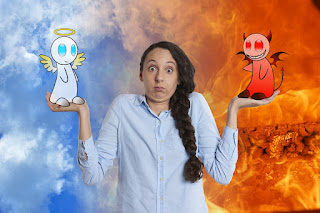In a world where human interactions are a crucial part of our daily lives, it is natural to crave acceptance and positive relationships. However, there are instances when we encounter individuals who seem to harbor dislike towards us, seemingly for no apparent reason. It can be a perplexing and disheartening experience to face unfounded hatred. In this blog post, we delve into the complex nature of human behavior and explore some possible reasons why people may hate you for no reason.
Projection and Insecurity
One possible explanation for unexplained animosity towards you could be rooted in the other person's insecurities. When people are grappling with their own self-doubt or unhappiness, they may project their negative emotions onto others. By hating or criticizing you without a valid reason, they attempt to divert attention away from their own issues and alleviate their internal discomfort.
Misunderstandings and Assumptions
Communication is a fundamental aspect of human interaction, but it is not always flawless. Misunderstandings can occur due to differences in perception, misinterpretation of intentions, or lack of effective communication. Even a simple misunderstanding can snowball into animosity if left unaddressed. People may form assumptions based on incomplete information or jump to conclusions without seeking clarification, leading to unfounded dislike towards you.
Jealousy and Envy
Envy is an emotion that can provoke irrational behavior and create unwarranted hatred. Success, achievements, or personal qualities that you possess may trigger feelings of jealousy in others. People might resent you for your accomplishments or the attention you receive, leading to baseless hostility. It is crucial to remember that envy often stems from others' dissatisfaction with their own lives, rather than any fault of yours.
Group Dynamics and Conformity
Humans are inherently social beings, and group dynamics can significantly influence individual behavior. In some cases, people may join a particular group or adopt a particular opinion, leading to a collective disapproval of certain individuals. This phenomenon, known as groupthink, can result in unfounded hatred as individuals conform to the group's norms and biases without critically evaluating the situation.
Past Experiences and Prejudices
Sometimes, the reason for unexplained hatred lies beyond your control, rooted in the other person's past experiences or deep-seated prejudices. They may have encountered someone who reminded them of a negative past experience, leading to an unconscious bias against you. These biases can stem from factors such as cultural differences, personal beliefs, or even inherited prejudices.
Conclusion
While it is disheartening to experience unprovoked hatred, it is essential to recognize that these negative emotions are often not a reflection of your own shortcomings. Understanding the various psychological factors that may contribute to such behavior can help you navigate these situations with empathy and resilience. By focusing on self-improvement, fostering open communication, and maintaining a positive outlook, you can minimize the impact of unwarranted hatred and cultivate a supportive network of individuals who appreciate you for who you are.







No comments:
Post a Comment